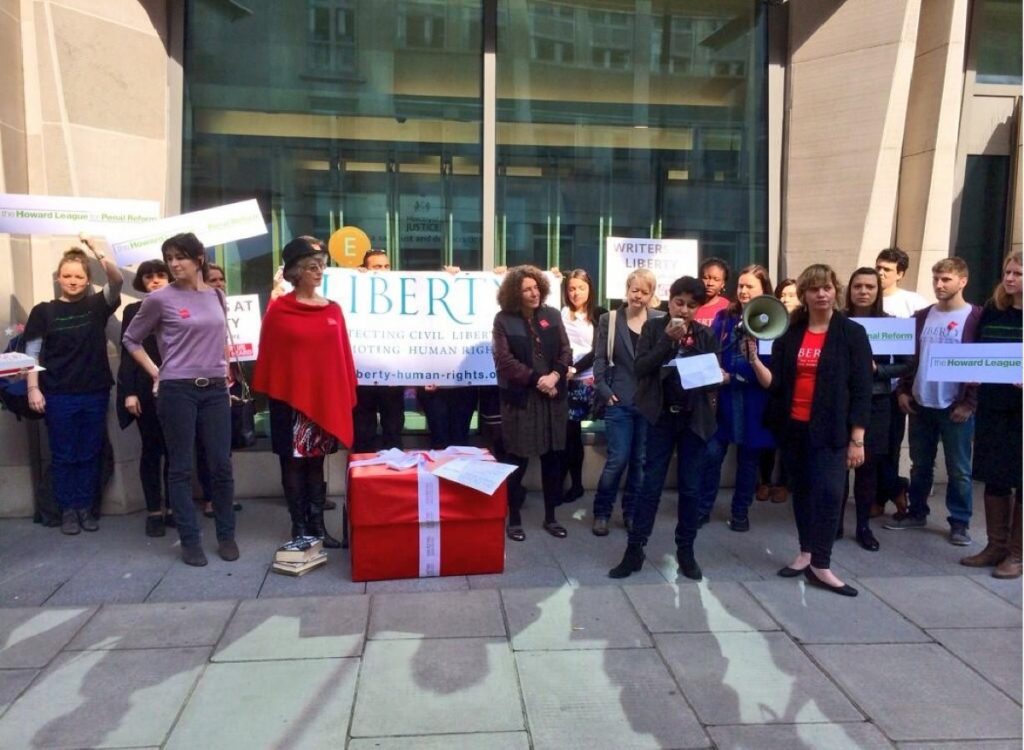Denied justice: Domestic abuse victims forced to stay in relationship
Victims of domestic abuse are being forced to stay with their partner due to cuts to legal aid, a damning new finding suggests.
A pamphlet launched today by trade unions and family law specialists shows solicitors are having to turn away 50% of families who would previously have been eligible for legal aid.
It warns that many victims of domestic abuse are failing to meet the restrictive criteria set up by the Legal Aid Agency, under reforms originally brought in by Ken Clarke and now carried through by Chris Grayling.
Family law specialists Simpson Millar solicitors said all its applications made under the new exceptional case category introduced by the legislation have so far been refused.


"The fact that nearly half of people face going to court without any legal representation in family law cases is hugely worrying," Emma Pearmaine, head of family and matrimonial at the firm said.
"The impact on the system and users is obvious – cases take much longer and the added anguish suffered by parents and their children is wholly unacceptable.
"There are no winners of this reform but the biggest losers are families who are already going through a difficult time; they now face huge barriers to access the help and advice they need."
Official figures show a significant decrease in the number of parents represented by a solicitor. Before the reforms, just 18% of cases started with neither party represented. The figure now stands at 42%.
This has resulted in more cases being contested and longer hearings to account for badly-prepared cases, leading to an increase in court costs and family distress.
"These cuts to legal aid are not only denying justice to families, increasing distress for parents and children, they could end up costing us more because they are putting more pressure on the courts," Public and Commercial Services (PCS) union leader Mark Serwotka said.
"This is the worst of all possible scenarios and is a direct consequence of this government's blinkered, political obsession with austerity."
The release of the pamphlet comes as justice secretary Chris Grayling endured a birthday to forget, as he is hit by multiple public demonstrations.
Members of probation union Napo joined with striking solicitors this afternoon for a protest against Grayling outside parliament, as they went through their second day of industrial action over legal aid cuts and the privatisation of probation services.
Meanwhile, members of Writers for Liberty travellled to the Ministry of Justice to deliver the justice secretary a parcel of books for his birthday.
The book delivery was aimed to embarrass Grayling, as the fury over his decision to ban prisoners being sent books refuses to die down.
The justice secretary also has the threat of legal action hanging over him, after prominent human rights lawyer Geoffrey Robertson said he could be taken to court for acting "unlawfully and irrationally" over the book ban.
Robertson, who is joint head of Doughty Street Chambers, the largest human rights practice in Britain, said the restrictions could see Grayling taken to court for acting unlawfully and irrationally and for denying prisoners their right to receive information.
He said it might additionally be argued that Mr Grayling was breaching the 1688 bill of rights by taking it upon himself – as a politician and not a judge – to inflict "cruel and unusual punishment" on prisoners who are literate.
"With ministers digging their heels in despite the fantastic expressions of support we have received from famous authors and ordinary members of the public, we are now with regret considering legal action," Frances Crook, of the Howard League for Penal Reform, said.
"We still hope that the Ministry of Justice will see sense and work with us to resolve the unintended consequences of this policy."
Jo Glanville, director of English PEN added: "This is a counter-productive measure that has shocked the public and the literary establishment, and we're very disappointed by ministers' response to the campaign.
"We should not need to resort to legal action to convince the government to drop such a manifestly unpopular and ill-considered policy."









